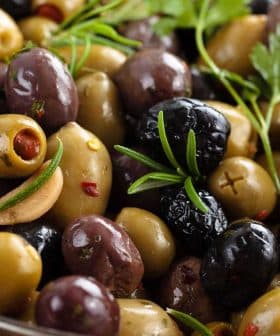EU Report Predicts Rise in Production While Consumption Slips
By 2030, the European Commission estimates that production and exports will rise from the major olive oil-producing EU countries, but consumption will sink as prices rise and lifestyles change.
The European Commission’s report predicts an increase in olive oil production in the EU due to improvements in cultivation methods and machinery, despite a projected decline in consumption in the main producing countries by 2030. However, consumption in the rest of the EU is expected to rise, compensating for the decrease in the leading producers and increasing the EU’s export capabilities.
A new report released by the European Commission outlines a medium-term outlook of various agricultural and commodity markets within the EU Member States from 2018 until 2030. The report focuses on production, consumption, and possible export opportunities.
The consumption of olive oil in the main producing countries has decreased over the last years… Over the same period, demand for olive oil has increased in the rest of the EU and at a global level, and so did the exports of EU olive oil.
Production is expected to increase in the olive oil sector, benefitting from the planned structural improvements in the main olive oil-producing European countries, and will satisfy the increasing global demand for olive oil. However, consumption in the main countries is expected to decline and be significantly lower by 2030 compared to present day.
See Also:Olive Oil BusinessFour countries — Spain, Italy, Greece, and Portugal — account for 99 percent of the total olive oil production in the EU, and 790,000 olive growers were active in all the EU olive oil producing territories in 2016. The total yield for the current 2018/19 harvesting season is expected to reach 2.3 million tons of olive oil.
The report predicts an increased production and growing capacity in the EU in the coming years, mainly due to changes and improvements in cultivation methods and agronomic practices, and the modernization of the machinery used.
Growers in Spain and Portugal are continuing to invest in irrigation systems and new harvesting methods have been introduced in Italy. In its the milling industry, Portugal is also replacing its old processing equipment with new articles.
This will further strengthen the EU’s export position and capabilities, the report stated, especially now that non-EU countries, such as Turkey, are increasing their olive oil yield year-by-year.
In terms of consumption, a progressive reduction is anticipated in the four main producing countries of the EU due to changes in lifestyle and the increased price of olive oil compared to previous years. By 2030, the per capita consumption in the big four is expected to be at 9.5 kilograms on average.
On the other hand, consumption in the rest of the EU will likely increase and compensate for the loss in the leading producers. In 2030, about 33 percent of the EU olive oil will be consumed outside the big four, according to the report, compared to 23 percent in the 2015 to 2017 time period.
The market in the United Kingdom was referenced separately in the report due to the forthcoming Brexit in March, and the UK was acknowledged as the second larger purchaser of EU olive oil after the U.S., with 64,000 tons (including pomace oil) being imported in 2016 and 2017 on average.
A European Commission Agricultural and Rural Development representative told Olive Oil Times that global consumption of olive oil is highly dependent on the production.
“At a global level all the produced olive oil is consumed and variations in consumption follow closely variations in production,” a spokesperson for the Commission said.
“The consumption of olive oil in the main producing countries has decreased over the last years,” the spokesperson added. “Mainly because of the reduction of the purchasing power since the financial crisis in a context of prices relatively high for olive oil in relation to the previous decade. Over the same period, demand for olive oil has increased in the rest of the EU and at a global level, and so did the exports of EU olive oil.”
The spokesperson also explained that the projections for olive oil consumption the report contains were made taking into account this slightly decreasing trend the previous years.
“However, consumption is based on numerous drivers (position of olive oil in edible oils, health benefits, Mediterranean diet etc.), use and consumption habits changes (household consumption, foodservice, lifestyles), country of origin, branding, and promotion, that require to be analyzed,” the spokesperson said.
As far as the UK is concerned, the Commission expects it to remain a big importer of EU olive oil given the prominent position of the EU production in the world market and the limited alternative supply sources available.









